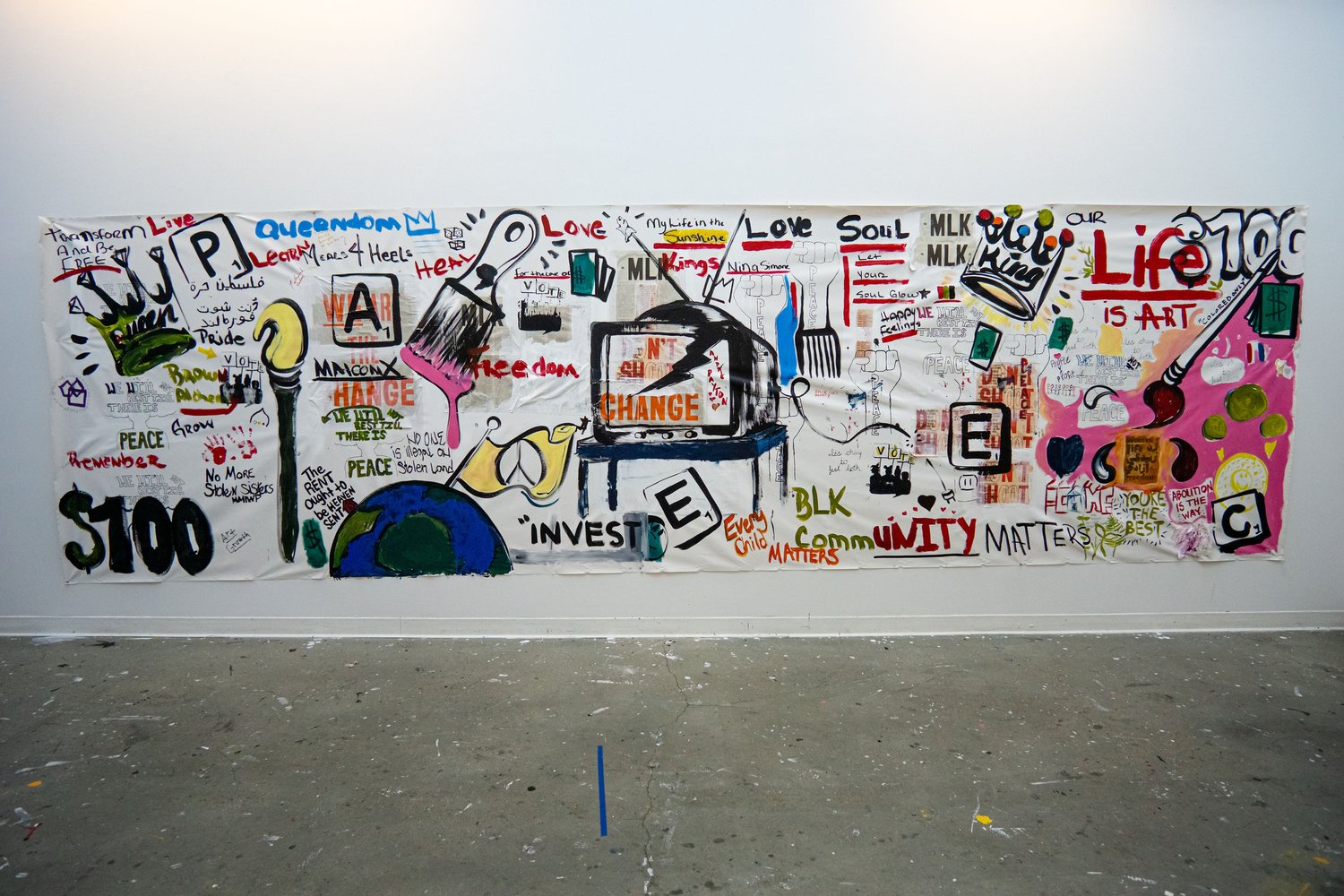We are the Dream: Spring Break Out
Our week long programming series, Let the Youth Lead, was done in the spirit of Dr. Martin Luther King Jr to uplift the work of our community to youth across the world. The day we dedicate our lives to organizing for human rights, we are putting Dr. King’s dream into action. We are the Dream.
For the next few weeks we will be reflecting on our panelists and publishing their profiles ahead of our Spring Break Out video recap. The five days of programming covered how to use your voice, what is mutual aid, promoting a rally, knowing your rights and art for social change. #SpringBreakOut #MLK #WeAreTheDream
These discussions were recorded live on our Youtube channel – please watch them here.
Barak Goodman. Photo by Mika Martinez
Barak Goodman on ‘What is Mutual Aid?’ for #SpringBreakOut:
“For me, mutual aid is so much more than just an organizing theory. Mutual aid for me is always based on mutual respect and mutual reciprocity. That's just something that's been instilled in me my whole life. My mother was born in a refugee camp, she had 8 brothers and sisters and her parents living in a tent and they had to take care of eachother, because there was no other option. Even when my mom emigrated to the United States and was working full time, she was always helping out our neighbors whether it was bringing meals or bread or clothes when kids needed it, so I saw that as a kid and just thought it was normal; we take care of eachother.
As I got a little older, I saw that wasn’t always the case, especially in predominantly white communities where there’s this very capitalistic ‘Pull yourself up by your bootstraps' ethos that gets pushed on us from a young age so that once you’re 18 it’s like - ‘You gotta go, go be on your own, make a name for yourself’. And that’s just a complete capitalistic myth, because no one's ever done anything on their own. A lot of those same people have a lot of privilege. But how we can combat that is by coming together and building these really strong community ties. You start that mutual aid relationship by walking up to someone who looks like they need help and asking ‘Do you need help?’ which is so different from just showing up somewhere with a bunch of medicine or food and telling a community what they need. Thats the big difference, really building those relationships where you’re working together, you’re not working for them and they’re not working for you - nothing is expected from either side and the end goal is that everybody is taken care of.”
Xochilt Ruvalcaba. Photo by Mika Martinez
Xochilt Ruvalcaba on How to Use Your Voice for #SpringBreakOut:
“I think that for me, art has always been my voice. Whether it’s documenting my past, my present or my hopes for the future. I really feel an obligation and responsibility to tell stories as an artist.
When I painted my mural downtown I did it specifically with the idea of going way back. We had all of these current cases and I just had a realization that there’s nobody that suffers more sometimes than a Black mother. I just wanted people to be able to look at those kids and see them in a beautiful place and understand that this problem is more than just what people have seen for the last year. I wanted people to see some stories that maybe they didn’t really know, that people don’t talk about. Who can look at a child's face and try and make an excuse? They’re just babies.
I wanted people who don’t get it, to get it. It’s also the first time I had ever put written text with my art. I wanted people to read the stories, who maybe wouldn’t normally take the time, to educate themselves. I wanted people on the other side of that spectrum - I wanted people who don’t think there’s racism, who don’t understand white fragility, people who just don’t have a lot of knowledge. People who aren’t activists, people who don’t protest. I wanted to hit people who are privileged but don’t feel privileged. Who maybe are kind of racist and don’t know they’re racist. Or people who make excuses even, for their family and friends.”
Samuel Eisen-Meyers. Photo by Mika Martinez
Samuel Eisen-Meyers on How to Use Your Voice for #SpringBreakOut:
“Since I was little and growing up in Portland, I’ve always had this due diligence to work within the individualism that art codifies and romanticizes to bring that due diligence to a sense of dismantling the systemic racism that has been so embedded into the fabric of this country. Working to shift the power dynamics in this city through the supporting role as an artist. I’ve always used my voice personally to show up for the community here and for ways to support the movement in any way shape possible. Especially looking at Portland, as one of the most racist cities in the entire country, I think that it's up to artists to show up in support and solidarity by helping through those mediums.”



